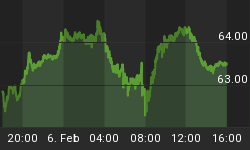The ratio of Oil Stocks to current Crude Oil Prices has been a good indicator of trends in the broader stock market. Since June this correlation has been breaking down with implications for both markets.
In a recent article on current oil prices we discussed why oil stocks do not necessarily move in lock-step with the price of oil. In short, Oil Stocks are significant components of large stock indexes and as a result tend to move with the big averages regardless of the underlying oil price.
However, as soon as the price of Oil begins to head higher, economists become very nervous and fears of an inflationary shock ala 1973 resurface. Recent history has shown that a near 8 fold increase in the price of oil has not resulted in an outbreak of inflation, a recession or stock market collapse. In fact the stock market has surged higher during this same period which begs the question, is rising Oil prices good for the economy?
The answer as we explained in the above article is that if higher oil prices are accompanied by higher oil stock prices the overall effect is positive for the economy and the broader stock market - the global growth theme. If the price of Oil is outperforming Oil Stocks this is perceived as inflationary and bad.
Hence we like to watch how this ratio performs to give us a clue of what to expect from the broader market.

Chart 1 Oil Stock: Current Crude Oil Prices ratio; Dow Industrials (blue)
By and large the oil stock: oil price ratio has been closely aligned with the Dow Jones Industrial average.
Current interpretation: The ratio made a double top in May 2007 (top green line) providing a warning that the stock market rally may soon be ending. Yet the stock market rallied into June causing us to question the usefulness of this ratio as a leading indicator.
The ratio continued dropping in June and July and then broke below its February lows (lower green line). Alongside this action the stock market has turned down ferociously.
Where to now?
I note that Oil prices have been rallying for nearly 7 weeks so they should be due for a rest. But the break below February lows is a sign that further out performance by the price of Crude versus Oil stocks is on the cards. The implication is that further stock market weakness lies ahead.
Take cover!
More commentary and stock picks follow for subscribers...















